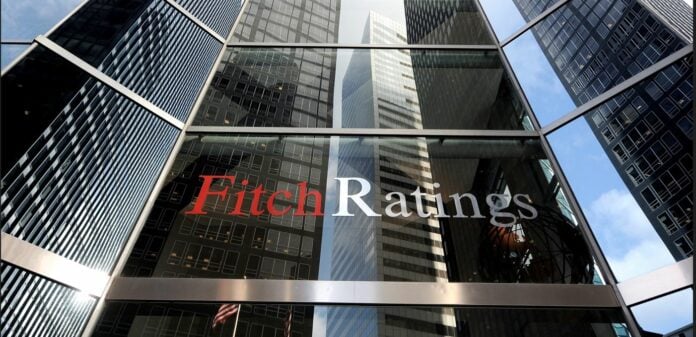Fitch Ratings has affirmed Greece’s Long-Term Foreign-Currency Issuer Default Rating (IDR) at ‘BBB-‘ with a Stable Outlook.
Greece’s ratings are supported by income per capita levels above and governance indicators in line with the ‘BBB’ median, as well as a credible policy framework underpinned by EU and eurozone membership. Fiscal and macroeconomic adjustment has accelerated over the past years, based on improving fundamentals and policy credibility. These strengths are set against the legacies of the sovereign debt crisis, in particular the very high, but steadily declining public debt, as well as the significant loss of economic output, low investment rate, persistent external imbalances and legacy contingent liabilities from the banking sector.
The main reasons:
Prudent Fiscal Stance
The government’s sound fiscal policy is expected to continue in 2025 and 2026. Greece has achieved a strong fiscal position following the pandemic and the energy shocks, with a budget deficit estimated around 1% of GDP this year. This is more favourable than the current ‘BBB’ median deficit of 2.6% and below the EU average of 3.1%. Revenues are boosted by improving tax collection, while expenditure is under tight government control. We forecast the primary budget surplus to remain above 2% of the GDP until at least 2026.
Credible Fiscal Framework
The government’s commitment to fiscal prudence was recently reinforced by the draft 2025 budget and the medium-term fiscal-structural plan prepared in line with the revised EU fiscal framework. The government has pledged to keep the budget deficit significantly below the 3% of GDP reference value over the medium term and ensure a continuous decline of the debt to GDP ratio, based on a modest primary expenditure growth path, the new key variable of the EU rules. Fitch views the consolidation plan as credible.
Falling Public Debt
The combination of steady primary surpluses, low and stable interest costs and nominal GDP growth around 4% will ensure a continued decline of the debt to GDP ratio. Our baseline scenario is that debt could decline below 140% of GDP by 2028 from 164% at the end of 2023 and a peak of 207% in 2020. Greece has achieved one of the largest post-pandemic debt declines in Europe. Nevertheless, debt is still almost three times higher than the ‘BBB’ median of 56% and well above the eurozone average of 90%.
Low Financing Risks
The country’s favorable debt profile – long average maturities of 19 years with concessional interest rates and large cash reserves (EUR47 billion in September 2024) – significantly reduces market risks and serve as a buffer against future shocks. Against this favourable background, we expect a smooth transition back to market financing. Public debt increased by EUR12 billion (5.5% of GDP) due to the reclassification of the deferred interest rate on EFSF loans. The reclassification also increased the implicit interest rate on the debt stock by around 20bp from 1.3% to around 1.5%, still well below nominal growth of the Greek economy.
Modest Growth Trajectory
2.4% real GDP growth is forecast for next year, similar to 2024 and 2023. Growth is supported by a steady acceleration in investments and moderate consumption growth, underpinned by real-wage increases and a further fall in unemployment. The unemployment rate declined to 9.3% in September 2024, the lowest since 2009 and inflation has stabilised around 3% over the past months. The Recovery and Resilience Facility (RRF) has supported investments, with Greece achieving one of the highest absorption rates of the grant component among EU members. We also expect some positive spill-overs from the RRF to private investment and consumption.
Wide CAD
The current account deficit (CAD) was 6.3% of GDP in 2023, significantly higher than the ‘BBB’ median of 0.3%. The CAD narrowed in 2023 from 10.3% of GDP in 2022, due to lower commodity prices, but the improving trend has not continued in 1H24. Tourism revenues slowed in the peak summer season, likely reflecting the overall weakness in European demand.
From a structural perspective, the very low savings rate of Greek domestic sectors is the main reason for the substantial CAD, while the further acceleration in import-rich investments over the medium term will put further pressure on the CAD. Eurozone membership mitigates financing risks stemming from the large CAD and we do not expect any disruption to external capital flows.
Banking Sector Upgrades
Fitch upgraded the ratings of the four systemic banks by one notch in September, with Positive Outlooks. This reflects our expectations of further improvements in Greece’s operating environment and the banks’ credit profiles. Greek banks maintain high liquidity and strong profitability, supported by higher interest rates, restructuring completion and balance sheet clean-up.
Improving Capital and Asset Quality
The total capital ratio of 19.1% at end-June 2024 is close to the eurozone average of 20.1%. The consolidated non-performing loans ratio (end-June 2024: 6.4%) will decline further in 2H24-2025 due to a combination of organic actions, small portfolio sales and loan growth. Also, asset-quality clean-up at less significant institutions is going to be supported by the asset protection scheme.














